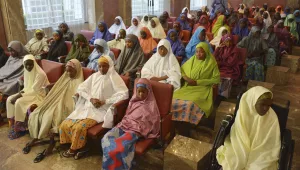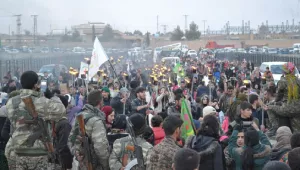Any analyst or citizen of the countries of the Middle East quickly becomes dizzy these days in trying to find the start of a thread of ideas that could help explain the cataclysmic developments in Iraq and Syria, Lebanon, Palestine-Israel, Egypt, Libya, Kurdistan and other fractured and violent lands.
Seeking a single pattern that could explain all these different regional upheavals is futile. Relevant markers such as the Sykes-Picot agreement, the Arab-Israeli conflict, and modern Arab oil-fueled, security-based development explain some aspects of the current Arab turmoil, but they do not clarify how events may unfold in the years ahead.
There is no single thread that explains the turbulent Middle East today, no single map being redrawn, no one dominant force that motivates the actions of hundreds of millions of agitated people. The drivers that make individuals behave in certain ways are multiple and fluid – including economic needs, social stresses, sectarian fears, nationalist aspirations, material greed, religious protective actions, anti-colonial and anti-occupation resistance and others.
The predominant lens of fragile statehood since Sykes-Picot fails to capture the two dominant dynamics that have shaped people’s behavior in this region for about 5,000 years – from the Early Bronze Age when cities, city-states and regional proto-states started to take shape and provide individuals and families anchorage in larger units that ultimately became nation-states, empires or caliphates. These two dynamics are local interactions among tribes and sects for a stable political-economic order and the disruptive impact of armies from abroad.
The prevailing impulse for individuals and families across the Middle East is elemental and universal (and secular, to boot): to survive, protect themselves, and provide for their family’s future wellbeing. For thousands of years – almost 10,000 years to be precise, since Natufian-era hunter-gatherers started to settle down into small, permanent year-round communities – families and larger communities have constantly done this by negotiating coexistence relationships with neighbors and foreign powers alike, or fighting them when needed.
Events in Iraq, Syria and Lebanon best capture how communal groups or individual families (as in central Iraq or northern Lebanon) make daily decisions on how to survive and increase their prospects for a better future. So alliances shift, enemies change, and solidarities and power relationships evolve month by month (for example the flexible political positions of the Druze community in Lebanon or Sunni tribes in central Iraq, who do what they must to survive amid local tensions or foreign invaders).
So one day a family takes up arms against American troops in Iraq and the next day the same family accepts cash from the American armed forces in order to fight a different foe – for a while. Down the road, the same family allows the vicious Islamic State of Iraq and Greater Syria (ISIS) to enter town, then turns against ISIS, or joins ISIS in fighting the Iraqi government, while being bombed by Syrian, Iranian, Iraqi and American troops.
History and state sovereignty do not impress such actors. Millions of Arab, Kurdish and other families in this arena aim neither to reverse nor cement Sykes-Picot, but to make it through the day alive and to wake up tomorrow with some water and food within walking distance of their home. Late Stone Age Natufian rules never die out, it seems.
This week’s events of U.S. President Barack Obama sending another 200 troops to Iraq, or Israeli Prime Minister Benjamin Netanyahu bombing Gaza, or everyone in the region attacking ISIS are passing moments in a larger picture of the forces that will shape the future of this region: the micro-motivations and survival strategies of tens of millions of families and hundreds of thousands of communities that work to make it through the day, as they have made it through the millennia, by cooperating with both ISIS and American troops with the same ease, for the same purpose.
There is no single explanation or thread to the insights into our future, other than this eclectic, unpredictable, wildly gyrating human will to survive, treating borders, invading armies and local rulers as just one more threat to resist or one more party with which to make a deal. The only new factor today is that we feel the impact of this collective will among hundreds of millions of people whose sentiments had been suppressed and ignored for centuries by the stifling rule of local, regional or foreign powers – sometimes all at the same time (as in the case of Palestinians or Kurds, for example).
The most accurate analysis of Middle Eastern developments must be anchored in the force of its own people’s living legacies, rather than in the lingering Orientalist and colonial fascination with long-dead, cognac-filled European amateur map-makers.
Khouri, Rami. “The principle of survival defines the Middle East.” Daily Star, July 2, 2014





